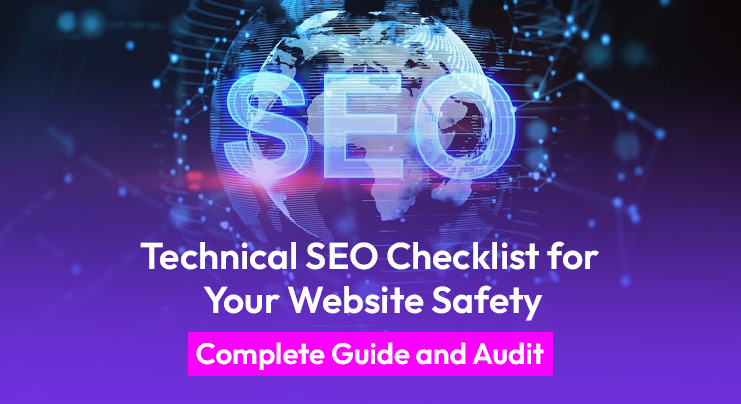Setting up a Shopify private label Small business in Pakistan could be a thrilling experience, but before starting, pinpoint the legal sphere. There are several advantages when one launches a private label business on Shopify in Pakistan, however, one should not be oblivious to the fact that in addition to opportunities that are revealed, it is inevitable to know the legal context in detail.
This complete guide aims to deal with the legal and regulatory considerations for small business in Pakistan, regulatory considerations for small business in Pakistan, particularly in the area.
Understanding the Legal Framework for Small Business in Pakistan
Getting to know the legal structure and the possibilities that the entity you will select has to do small business in Pakistan are the most important things you need to be careful about before you launch your Shopify store. The option you go by will affect your tax liabilities, personal accountability, and operational adaptability.
Types of Legal Structures in Pakistan
- Sole proprietorship: A business development that is the easiest of all the forms, mostly suitable for individuals who start or own enterprises.
- Partnership: A form of enterprise suitable for two or more persons bearing equal or unequal liabilities and sharing of profits.
- Limited Liability Company (LLC): There is a personal liability protector– your asset will be separated from the company’s and you, as a result, will have a simple way of ruling.
- Private limited company: The most viable choice due to its unmatched legal protection and the related credibility it can offer startups and growing businesses.
For instance, for many Shopify private label businesses, we would propose owning either a sole proprietorship or a private limited company, which is based on your long-term goals and the queue of operations you are planning. The legal and regulatory considerations for small businesses in Pakistan and e-commerce and Shopify private labels are the focus.
How to Register a Small Business in Pakistan with SECP
Business registration in Pakistan is a key assignment in establishing your Shopify private label lawfully. The process requires several steps and involves interactions with several government entities. The main body to be in control is the Securities and Exchange Commission of Pakistan (SECP), which is relatively efficient in terms of the whole process of business registration. A complete listing of how to register a small business in Pakistan with SECP gives the following steps:
1. Select a name for your business and get it approved by SECP.
2. Prepare and submit the required documents, including the Memorandum and Articles of Association.
3. Pay the prescribed fee for registration.
4. Obtain the Certificate of Incorporation from SECP.
The whole routine usually takes between one and two weeks and can even be started on an e-services portal offered by the SECP.
Tax Obligations for Shopify Private Labels in Pakistan
The comprehension and fulfillment of tax obligations are two of the main points through which your operation as a Shopify brand can be successful and assured. Let us have a look at some of the tax compliance for small businesses in Pakistan points.
Essential Tax Registrations
- National Tax Number (NTN): It is a distinctive code for identifying taxpayers. The Federal Board of Revenue (FBR) shall issue it to you.
- Sales Tax Registration Number (STRN): It is mandatory once your annual turnover exceeds PKR 3 million and you are a manufacturer or importer concerned.
Types of Taxes Applicable to a Small Business in Pakistan
Knowledge of the basic taxes that Pakistani small businesses will have to settle is one of the most helpful things. Understanding tax obligations for small business in Pakistan:
- Income tax: This one depends on your firm’s annual profit.
- Sales tax: This is charged on the sale of goods, and depends on various other conditions on some services being offered.
- Withholding taxes: There may be cases where you are required to subtract part of a fee that you pay to some of the suppliers, which are to be turned into taxes.
A tax consultant should be brought in to get the best advice on the tax plans and to check the full compliance with the tax laws.
Compliance Requirements for E-commerce Small Business in Pakistan
Putting on a Shopify shop on Pakistan’s soil means you have to stick to some specific compliance requirements that go beyond the common business regulations, especially Import and export compliance.
E-commerce Specific Regulations
- Consumer Protection Laws: Tell about the product, and mention the pricing, and return policy.
- Data Protection: Implement measures to meet the standards and specifications, as well as to guarantee customer data according to Pakistani law.
- Payment Gateway Compliance: Using a payment gateway that complies with the government’s requirements that are typically met by the State Bank of Pakistan.
Intellectual Property Considerations
Trademarks, patents, and copyrights are the three major methods of protecting your image and goods for Starting a private label business. These include the following Intellectual property registration in Pakistan.
- Trademark Registration: Register the brand name and logo at the Intellectual Property Organization of Pakistan.
- Copyright Protection: Make sure that the product designs and marketing materials are copyright-protected.
Legal Considerations for Importing and Manufacturing
In case you are dealing with sourcing or producing merchandise locally for your Shopify white label, then extra-legal points appear:
- Import Licenses: Take the necessary licenses from the Ministry of Commerce.
- Quality Standards: Compliance with Pakistan Standards and Quality Control Authority (PSQCA) norms.
- Labor Laws: If you are using local labor, make sure that you are adhering to all the Pakistani labor laws and regulations.
Navigating Digital Regulations
You must also take into account the digital regulations that might regulate your online store, as an e-commerce:
- Electronic Transactions Ordinance: It provides for the recognition of electronic documents and signatures as valid in the eyes of law.
- The Prevention of Electronic Crimes Act: This Act criminalizes some activities and it has some components concerning data protection and cyber security.
Financial and Banking Considerations
Choosing the right legal structure for your small business in Pakistan. Conducting business illegally is a great way for your startup to go bankrupt. You must run your business legally in the background.
- Business Bank Account: Open a company account with the bank to evade incalculability of cash management from personal cash.
- Foreign Exchange Regulations: Get the rules and regulations that will give you the right to receive payment from international customers.
Ongoing Compliance and Reporting
Drilling for compliance on an annual basis is a continuous practice.
- Annual Returns: You are to file annual returns to SECP and the tax collectors every year.
- Record Keeping: You are required to keep financial records exactly according to the regulations of the tax office.
- Regulatory Updates: Get information about e-commerce laws and other business laws in Pakistan.
Conclusion: Fulfillit Your Legal Consideration Partner
Establishing a private label Shopify small business in Pakistan follows a legal path that deserves the same care as any small business in Pakistan would require. and attention as its regulatory issues, both at the start and afterward. Lifting off with your Shopify private label business is possible after you have taken care of the compliance issues with legal and regulatory requirements. Nevertheless, do not forget to consult with legal and financial professionals to avoid mishaps the law may hold your business liable for potential pitfalls can be avoided.
Seeking professional legal and financial advice fulfilllit is the perfect choice. Book free consulation call now!
FAQs
1. Do I need to register my Shopify store with SECP small business in Pakistan?
Yes, if you act as a formal entity. You should get your business listed in SECP to be a legitimate business and credible.
2. What taxes do I need to pay for my Shopify small business in Pakistan?
Except for income, the other two are sales and maybe withholding taxes that depend on the business type and the level of production.
3. Can I operate my Shopify store as a sole proprietorship in Pakistan?
At the same time, a sole proprietorship can be a legitimate legal entity to conduct business in Pakistan, although you should remember that it does not include many layers of security and there may be some problems linked to the scalability of the business.
4. How do I obtain a National Tax Number (NTN) for my e-commerce business?
You can apply for an NTN online through the Federal Board of Revenue’s e-filing system or by visiting their respective offices in your city.
5. Are there specific regulations for selling products internationally from Pakistan through Shopify?
Indeed, you are obliged to obey the rules for the export of goods, and foreign exchange issues and it is possible to obtain some of the licensing for the products you are going to sell.










